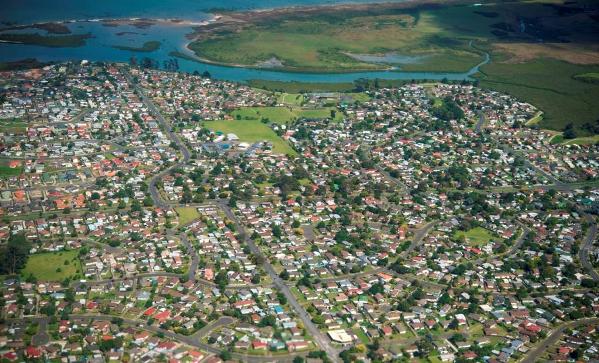The OECD has just released the results of its third environmental performance review of New Zealand – and the lack of a comprehensive urban development strategy is highlighted as a problem.
New Zealand’s economic growth model has started to show its environmental limits with increased GHG emissions, freshwater contamination and threats to biodiversity, the report said.
Fast growing cities, which tend towards urban sprawl serviced by roads and cars rather than more compact, sustainable development are contributing to the issue.
The report said that New Zealand is one of the most urbanised countries in the world and most urban areas are expressing pressure from population growth.
But institutional fragmentation, a complex urban planning system, inconsistent local practices, policy misalignment and restrictive land use regulations frustrate both urban growth and environmental protection objectives.
New Zealand Centre for Sustainable Cities director Philippa Howden-Chapman said denser land-use is needed to reduce carbon emissions.
“Investing in roads which, as in Auckland, do not have road tolls or congestion charges, encourages urban sprawl.”
But the OECD report points out New Zealand has no policy statement for urban development, she said.
“Indeed, there a number of areas where New Zealand is an outlier, compared to the rest of the OECD, in making necessary improvements to the urban environment. “
The OECD makes a series of recommendations, many of which focus around simplifying the urban planning system nationally, making land-use regulations less restrictive and better co-ordinating infrastructure development.
It also recommended making more systematic use of development contributions and rates to guide efficient land use; considering the use of betterment taxes (eg: targeted rates) as an additional cost-recovery mechanism for infrastructure provision; and reviewing the current design of property taxation.
Howden-Chapman was a fan of these recommendations.
She pointed out that the OCED also said that increasing the supply of housing should not be to the advantage of vested interests at the expense of more compact urban form.
"I think these enlightened recommendations highlight the need for urban developments where transport, housing and public amenities are planned in concert with heightened consciousness of the effects of spatial inequalities."
Environment minister Nick Smith said the government agreed with the OECD assessment of New Zealand’s various environmental challenges, including the need to reduce the complexity of urban planning.
The report will help the government to sharpen their future direction and environmental aspirations, but it also reinforced the importance of the work programmes currently underway in the areas highlighted, the minister said.
When it comes to urban development, the government is now consulting on legislation which would establish Urban Development Authorities to enable faster and better regeneration of the cities.
Meanwhile, the government’s controversial amendments to the Resource Management Act recently passed their second reading in Parliament.
A central part of the amendments are changes which govern planning decisions and would open up land supply and reduce the time taken to get consents.
Read more:
Urban development authorities on the way




 Search
Search
